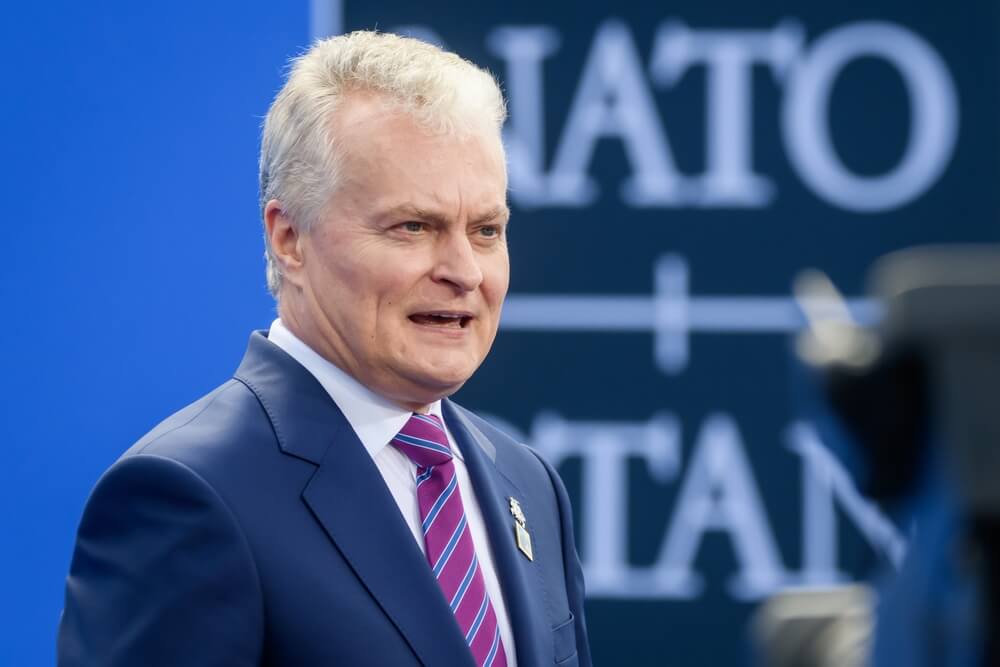In today's first round of parliamentary elections, Lithuania is expecting a shift in the ruling establishment. All prospects point to the departure of ruling centre-right coalition of the Prime Minister Ingrida Šimonytė and the victory of the social democrats of Vilija Blinkevičiūtė, a member of the European Parliament.
If the estimates come true, after the second election round on October 27, Lithuania will be one of the few European countries where centre-left parties came to power, replacing conservatives.
In the series of parliamentary elections across Europe this year and last year, the moderate or extreme right dominated.
According to polls, the opposition Social Democratic Party consistently receives between 20 and 25% of the vote, and given that the now-ruling conservatives from the Homeland Union—Christian Democrats have a double-digit deficit, there is no threat to their leadership position.
However, the Social Democrats will need to form a coalition with several smaller centrist parties because this projected result will not allow them to form a government on their own.
Election fatigue
A hybrid system governs the election of the Lithuanian Parliament (Seimus), with 71 deputies chosen in two election rounds in constituencies and the remaining 70 elected proportionally through party list voting.
Lithuanians, who are currently voting for the third time this year, are experiencing election fatigue. It is possible that this will lead to a lower turnout, which will enable some candidates to win in today's first election round.
In May, Gitanas Nauseda won the presidential elections and remained in office for another term. President Nauseda, a banker who is not affiliated with any party, achieved a convincing victory over Conservative leader and current Prime Minister Šimonytė in the second round.
Despite the fact that the ruling conservatives outperformed the Social Democrats in the June European Parliament elections, voters' motivations in the national elections have changed
This outcome, namely the defeat of the conservative candidate and the current prime minister, has already heralded the fall of the centre-right ruling bloc and a change in government as early as May.
Despite the fact that the ruling conservatives outperformed the Social Democrats in the June European Parliament elections by a margin of just over 3%, voters' motivations in the national elections have changed.
A state that works
The Social Democrats promoted their election programme, "A state that works," last August, emphasising internal economic issues, the cost of living, and migrants as their main assets.
Judging by the prospects from the polls, they succeeded in that, because the majority of 2.4 million Lithuanians who can vote want a change in the government as a way to improve the economic and social situation.
Lithuania has a fairly good economic record within the EU, particularly in curbing inflation, which has decreased from close to 20% in 2022 due to Russian aggression against Ukraine to less than 2% at present, which is lower than in the euro zone.
Some Lithuanians remain convinced that the government did not provide sufficient assistance to companies during the Covid pandemic
Additionally, the country successfully navigated through the COVID-19 pandemic period without experiencing any significant consequences. The EU, as part of its Recovery and Resilience Plan, granted Lithuania 3.8 billion EUR, of which 2.3 billion EUR in grants and 1.55 billion EUR in loans.
Lithuanians, however, want more. Some Lithuanians remain convinced that the government did not provide sufficient assistance to companies during the Covid pandemic, express dissatisfaction with the ongoing high cost of living, and perceive a potential solution in the shift from conservatives to social Democrats.
"Together with the president, I will form a socially responsible, uniting, and active government," the leader of the Social Democrats and the favourite for the new PM, Vilija Blinkevičiūtė, said earlier.
No change in support for Ukraine
The expected changes in the government will not affect the main foreign policy directions of Lithuania. Strong support for Ukraine will remain central, along with equally strong resistance to concessions to Russia.
This Baltic state, along with Latvia and Estonia, is a leader within the framework of the EU and NATO.
 President Gitanas Nauseda primarily establishes a country's foreign policy
President Gitanas Nauseda primarily establishes a country's foreign policy
Lithuania ranks third among EU and NATO member states, allocating close to 1.5% of its GDP in aid to Ukraine. It is also a strong supporter of Russia's isolation as a country that has a physical border with the Russian enclave of Kaliningrad.
President Nauseda primarily establishes a country's foreign policy, but regardless of potential changes in the government, the country will remain strongly orientated towards the EU and NATO, as well as in favour of the continuation of support for Ukraine, on which there is a political consensus.
Moscow's constant threats of a military strike against NATO member states are also responsible for this consensus, with the Baltic states feeling the most threatened.